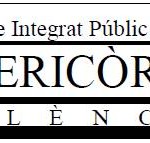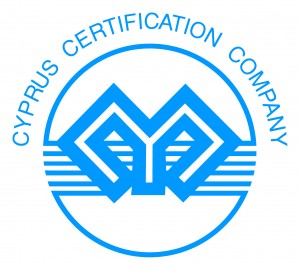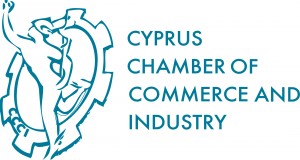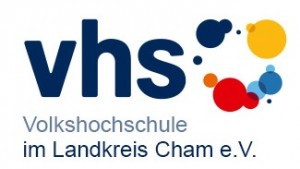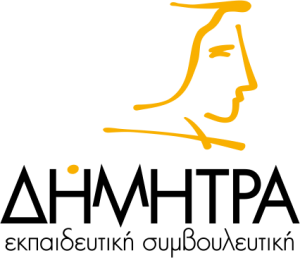|
Newsletter 1 – May 2016 |
|
Validation of formal, non formal and informal learning: The case study of Administration Personnel |
|
 |
Research demonstrates that the sector of office administration is important and very popular, it will continue to be one of the first professions in demand until 2020. EUPA_NEXT is the continuation of the successful project EUPA (Leonardo DOI) that has developed a qualification framework for administration personnel in four EQF levels (levels 2,3,4 and 5) and the assessment tool and training materials for level 2. EUPA_NEXT aims to assign credits to the qualification framework (levels 3-5) using ECVET and develop curricula and training materials for trainers as well as e-books for learners. EUPA_NEXT will certify all curricula and training materials with ISO. Additionally, it aims to develop an assessment for certification of all the levels 2, 3, 4 and 5. It will be ISO-certified with a relatively new standard ISO17024 that certifies personal competences. |
| Current Activities | |
|
The project started with the kick off meeting that took place in October (5th and 6th) In the first months of the project EUPA_NEXT, the project partners worked on the development of a comparative report (IO1) in order to identify the current situation of their countries as far as EQF and ECVET is concerned. This analysis answers to questions such as:
The methodology used for the development of this report included desktop research in all countries as well as interviews with different target groups: VET providers, stakeholders/policy makers and VET students. Please find the comparative report in English language as well as other interesting resources and links related to EQF and ECVET published on the projects website eupanext.projectsgallery.eu in section The Project/Intellectual Outputs. The first Learning Activity of the project took place in January 2016. During the learning activity partners had the chance to gain in depth understanding of EQF and ECVET. The second project meeting took place in Larissa, Greece in April 2016.
|
Contact Us:
Contact person Mrs. Christiana Knais christiana@mmclearningsolutions.com Address: 16 Imvrou Street, 1055, Nicosia Cyprus Telephone: +357 22 466633 Fax: +357 22 466635 Website:
Picture: Presentation of the EQF and
|
| Upcoming Events | |
|
During the project time various Multiplier Events for different target groups such as VET students, VET trainers, employers and policy makers are planned in all the project countries. The confirmed dates will be published prior to the event in the section Events of the project website. Members of these target groups are invited to join these events which will include presentations of EUPA_NEXT outcomes, discussions as well as exchange of experience and best practice. If you are interested to participate, please contact the partner organisation in your country or the project coordinator MMC in Cyprus. |
|
| Next Activities | |
|
After the Kick-off-Meeting in Nicosia in October 2015, the project partners started their work for the comparative report (IO1) in order to identify the current situation of their countries as far as EQF and ECVET is concerned. This work also included a First Learning Activity with staff learners from all project partner institution which took place from January 11-15, 2016 in Cyprus. The objective of this learning activity was to gain in depth understanding on the European Models of EQF and ECVET which will be crucial for the next phases in the project. In April 2016, the partner organisations met for the Second Project Meeting in Larissa, Greece. This meeting afforded an opportunity to further discuss and develop the project and its outcomes. During the coming months, the work of the project partners will focus on the development of the Methodology Guide (IO2) on the methodology to be used to assign credits to the learning outcomes (based on ECVET) of the EUPA qualification frameworks (levels 3,4 and 5). The guide will present the options and alternatives considered, the reasoning for the alternative selected as well as the a detailed step-by-step approach of the methodology to be used in the further phases of the project development. Moreover, the project partners will be engaged in the work for Three Qualification Frameworks of EUPA Level 3-5 with credits based on ECVET (IO5) where the methodology of assigning ECVET credits will be implemented to learning outcomes for levels 3,4 and 5. In the preceding project EUPA, credits had already been assigned for level 2. Additionally, all the Qualification Frameworks will be made available in all languages of partner countries. Therefore new translations for German and Spanish will be required for the following project phases. The Third Partner Meeting will be held in Bratislava (Slovakia) in October 2016. A Second Learning Activity for staff member is scheduled for June 2017 in Valencia (Spain).
|
Project Partners:
Picture:
|
|
|
This project has been funded with support from the European Commission. This publication [communication] reflects the views only of the author, and the Commission cannot be held responsible for any use which may be made of the information contained therein. Project Number 2015-1-CY01-KA202-011853 |
Back |
|
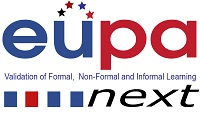 eupanext.projectsgallery.eu
eupanext.projectsgallery.eu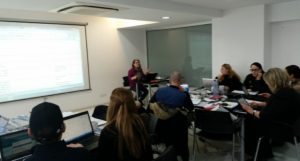
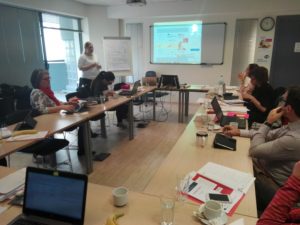
![orbis institute [Converted]](https://eupanext.projectsgallery.eu/wp-content/uploads/2016/03/orbis-institute_STANDARD-300x118.jpg)
